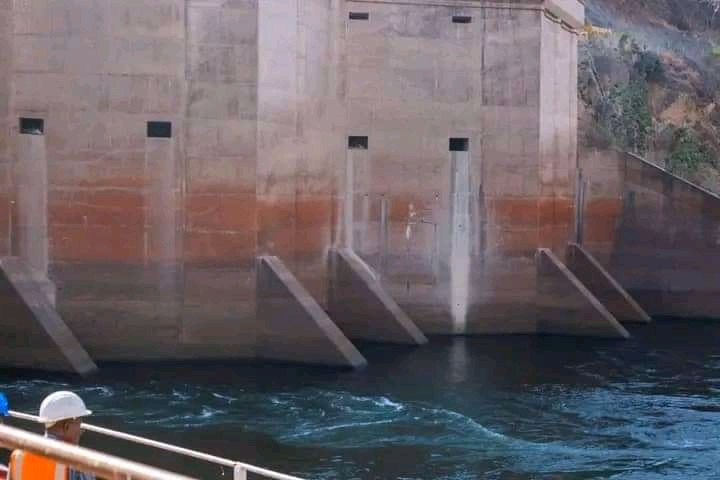WATER LEVELS DRASTICALLY DROP… ZAMBIA COULD GO DARK
The 17 hours of almost a day without power in Zambia could be worse in the coming weeks.
The water levels are drastically dropping with the onset of rains still three months away.
The Southern African country last season faced one of the worst droughts according to it’s president Hakainde Hichilema.
Zambian Eye Correspondent in Lusaka reports that the authority mandate to monitor the water levels are equally concerned.
The Zambezi River Authority (ZRA) has released its latest hydrology report, revealing a decrease in usable live water storage for power generation.
As of August 21st, 2024, the usable live storage has dropped to 9.26 percent from the 9.36 percent recorded just a day prior. This decline marks a significant change from the same period in 2023, when the usable live storage was at a substantially higher 27.75 percent.
The ZRA attributes the decreasing water levels to increased outflows compared to inflows in the Kariba Lake. This decline in storage has raised concerns regarding the potential impact on local communities and industries that rely on the Zambezi River for their water supply and power generation.
The Significance of the Zambezi River
The Zambezi River is the fourth-longest river in Africa, stretching 2,574 kilometers through six countries, including Zambia and Zimbabwe. The river plays a vital role in the economy and wellbeing of the region, serving as a primary water source and powering hydropower plants along its course. Notably, the Kariba Dam, located on the Zambezi River, is one of the largest hydroelectric power plants in Africa, providing electricity to both Zambia and Zimbabwe.
Implications of Reduced Water Storage
The decline in usable live water storage highlights the pressing need for proactive water management strategies and investment in infrastructure to ensure long-term water security. Reduced water storage could impact the following sectors:
1. **Energy Production**: The Kariba Dam’s reduced water storage directly affects its ability to generate hydroelectric power. Lower water levels mean lower energy output, which may lead to increased power outages and higher electricity costs for Zambian and Zimbabwean consumers.
2. **Agriculture**: Both small-scale farmers and commercial agricultural operations depend on the Zambezi River for irrigation. A reduction in available water resources could lead to lower crop yields, threatening food security and economic growth.
3. **Tourism**: Water-based tourism activities, such as river cruises and fishing expeditions, attract thousands of visitors to the region each year. A decrease in water levels may negatively impact the local tourism industry and the livelihoods of those who rely on it.
4. **Water Supply**: Communities along the river depend on the Zambezi for their daily water supply. Reduced water storage could lead to water shortages, affecting health, sanitation, and the overall quality of life for local residents.
#### Moving Forward
The declining water storage reported by the Zambezi River Authority should serve as a wake-up call for the region, prompting immediate action to address water management challenges. Potential solutions include:
– Implementing efficient water usage practices and technologies in agriculture and industry.
– Exploring alternative energy sources to reduce reliance on hydroelectric power.
– Encouraging rainwater harvesting and groundwater replenishment initiatives.
– Enhancing regional cooperation on water resource management and conservation efforts.
The Zambezi River’s reduced usable live storage for power generation serves as a stark reminder of the importance of proactive, sustainable management of shared water resources. With concerted efforts from stakeholders across the region, there is still time to secure a water-resilient future for the communities and ecosystems that rely on the mighty Zambezi River.

Ooops! It is dark cloud ahead. So you will hear that it is HH causing drought and blame him for long hours of load shedding. With this situation there is no urgent solution other than through long project which are already being put in place such as Maamba Energy project, SP Solar plant among many others.
Just shut down. There is excess power in SA and TZ that we can tap.